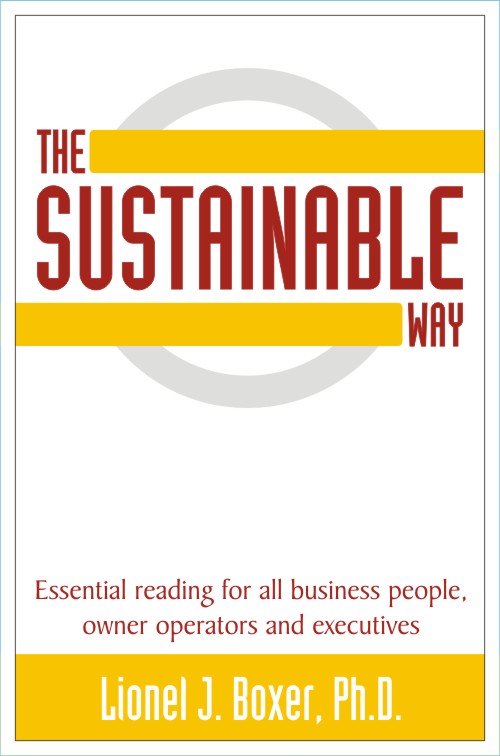how senior managers deal with sustainability issuesRead about my book The Sustainable Way.
They do so by dealing with the Implementation Gap Many of the best plans fail despite excellent: Social order - or cultural alignment - can enable or obstruct implementation. The challenge is to align the culture to the planned action, but far too often the culture is misaligned. Furthermore, the culture is invisible and people are not aware that it can have a destructive residual effect on planned action. We help senior management to understand why dealing with culture is so important. We do this through a personal service that evolves into an organisational service, where all staff are aligned with the organisation and objectives. The specific factors that are modified to achieve this alignment are:

Based on the notion that it is possible to align the social order with planned action, we have developed an approach and framework to audit the social order of a business. From this audit we prepare conversation plans for chief executives and their senior managers. These plans are designed to align the social order with the issues they need to deal with. The technique that is used in providing this service is briefly explained in this powerpoint presentation. Indeed this is a Real Problem During the past 20 years we have helped many clients deal with a range of changes. Clearly, some organisations promptly get underway and others do not. There is a need for people to accept requirements and inspire others to do likewise. Far too often the residual nature of the social order is overwhelming and people give in. People fail to lead. Those senior managers who successfully deal with planned action have shown us that they deal with the social order. They do this by recognising what we refer to as the social flux and the relationship it has with ordinary conversations that take place in the business. They listen to conversations and initiate corrective action through their own conversations to alter the conversations of others. In doing so, they alter various components of the social order and make the planned action part of a new paradigm as opposed to a fad. You can read a case study in my book chapter in Harré and Moghaddam's latest book The Self and Others and several papers.
and nations will maintain leadership only if they have a consitent mental attitude and a thirst for more competitive ways ...'
President and CEO - Juran Institute "Six Sigma Success Starts at the Top" Sig Sigma Exchange - July/Aug 2001
Date: 10/2004 Words: 470 Publication: HR Monthly Section: News Page: 6 Source: HR Monthly Some senior mangers do indeed behave badly (HR Monthly Sep 2004). Research has shown that some senior managers make bad ethical choices. Some writers have suggested this is due to careerist mentality. My research conducted between 1999 and 2003 at RMIT Centre for Management Quality Research suggests that some senior managers perceive they have a right to be exempt from behaviour expected of more junior employees. In fact, some CEOs have explained the unfortunate need to support some of their subordinate leaders in this improper perception. However, those CEOs who run their businesses well realise their obligation to challenge people to align their rights with the objectives of the organisation. Furthermore, they require people to accept duties that are aligned with objectives of the organisation and establish a moral order that supports these rights and duties. Most important, CEOs who run their businesses well engage in actions that reinforce these rights, duties and morals. Furthermore, they require others to emulate their actions. This model of behaviour is confounded by the way that people are rewarded. Of Demming's 14 points, perhaps the most important is to "eliminate quotas, numerical goals and Management by Objectives; substitute leadership". While this may appear contrary to good sense, a little consideration leads one to agree with this statement. When senior managers behave badly towards one another, it could be that their incentives are at odds. That is, the win situation for one senior manager could be a lose situation for another senior manager. Sometimes these conflicts are brought on by the efforts of one senior manager to shield their own incompetence. In one more sinister case, a consistently arrogant CEO was discovered to have embezzled over $300,000 in just over twelve months. After the CEO was found dead in his car from a self-inflicted wound, an audit of his previous place of employment identified a similar pattern of behaviour and there was evidence that similar indiscretions had extended throughout his career. Perhaps self-righteous arrogance and bad behaviour may provide warning signs. Regardless of the indiscretion, what was acceptable a generation ago can often be improper behaviour today. Some senior managers are shocked to realise that the mentors they relied on in their youth have received accolades for having behaved most badly by today's standards. Those perceived to be psychopaths in high places (HR Monthly Sep 2004) could be well-intentioned individuals, who base their behaviour on outdated models. A generation ago there was no sensitivity to equal opportunity, sexual harassment, sustainability, or quality. In fact, the opposite was often a celebrated characteristic of the archetype. To resolve these problems a clear culture is required that establishes acceptable rights, duties, morals and actions; and senior managers must resolve the to deal with all issues in a consistent way within the bounds of that defined culture.
Dr Lionel Boxer,
Date: 13/01/2004 Words: 180 Publication: Australian Financial Review Section: News Page: 43 Source: AFR In both cases, there appears to have been a reluctance on the part of senior managers to develop procedures commensurate with the risks involved. Chief executives of other similar businesses who participated in my research acknowledged their duty to deal with such sustainability issues. However, they were able to do so only after they realised that they did not have a right to ignore such issues. They explained how they created a moral order aligned with sustainability and engaged themselves in actions to reinforce their rights, duties and the moral order. All the research participants who were successful at dealing with sustainability displayed the sort of passion called for by motivation speaker Charles Kovess. Those who are not dealing with sustainability issues are not necessarily bad people. Rather, they are not yet enlightened as to the contemporary expectations of society in general and their peers in particular.
Lionel Boxer,
Date: 20/01/2004 Words: 231 Publication: Australian Financial Review Section: News Page: 43 Source: AFR Corporate failures such as those caused by ``out of control" currency trading have more to do with system failures than human failures. Systems reward people for performing in certain ways and they cannot really be criticised for working within the bounds of the system they are part of. Yet the systems of any business are the domain of management and how subordinates within the organisation interpret the rules of the system is influenced by senior managers. As research I have conducted demonstrates, effective senior managers ensure that the culture within their organisations is in line with corporate objectives. This includes four inter-dependent factors: help people to realise that the rights they assume might be inappropriate; help people assume appropriate duties; establish a moral order within an organisation that reflects appropriate rights and duties; and ensure that everyone engages in actions that support those rights, duties and moral orders. After more than 20 years of consulting to governments, corporations and other organisations in North America, South-East Asia and Australasia, I have noticed that far too many otherwise highly praised senior managers do not engage in aligning their culture to their organisation in this way. Of course, many get it right. Perhaps this other measure of culture might provide a more appropriate way to assess corporations than historical financial results.
Lionel Boxer, Intergon helps you to be your best! In Canada, Australia, New Zealand and South East Asia since 1981main | services | clients | history | links | staff | articleslboxer@hotmail.com
You Are Visitor
|

